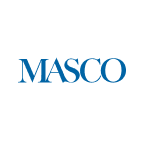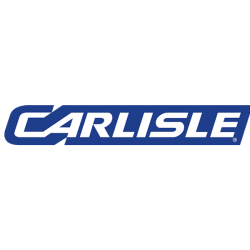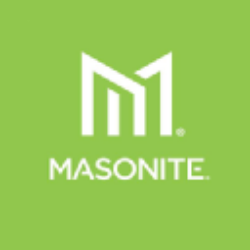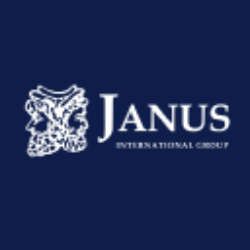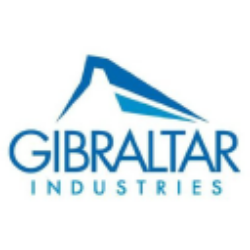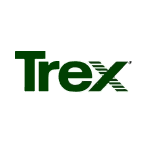LII
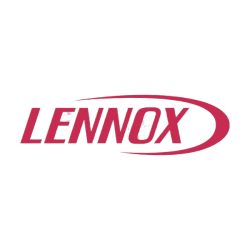
Lennox International Inc.
LII
(2.0)607,24 USD
21.49% ROA
151.84% ROE
33.55x PER
21.662.682.072,00 USD
228.51% DER
0.74% Yield
14.63% NPM
Lennox International Inc. Stock Analysis
Lennox International Inc. Fundamental Analysis
Fundamental analysis in stock investing is like studying the foundation of a house before buying it. It involves looking at a company's financial health, like its earnings, assets, and debts, to determine if it's a good investment based on its fundamental strength and potential for growth.
| # | Analysis | Rating |
|---|---|---|
| 1 |
ROA
This stock has a great ability to make a lot of money from the things it owns, which makes it a really good investment for smart investors. |
|
| 2 |
Dividend
Investors can trust the company's impressive dividend track record, consistently distributing dividends over the past five years, showcasing a strong commitment to rewarding shareholders. |
|
| 3 |
Revenue Growth
Company's revenue has experienced consistent growth over the last three years, indicating a favorable financial trajectory and making it an attractive investment choice. |
|
| 4 |
Net Profit Growth
The net profit of this company has shown steady growth over the past three years, highlighting its positive financial trajectory and making it an appealing choice for potential investors. |
|
| 5 |
Assets Growth
Over the past three years, this company's revenue has consistently grown, demonstrating a positive financial trend that makes it an appealing choice. |
|
| 6 |
Buffet Intrinsic Value
The company's stock seems undervalued (4.064) by Warren Buffett's formula, indicating a promising investment opportunity as its intrinsic value exceeds the market price. |
|
| 7 |
ROE
The stock's ROE indicates a negative return (-2020.58%) on shareholders' equity, suggesting poor financial performance. |
|
| 8 |
PBV
The stock's high Price-to-Book Value (P/BV) ratio (90.28x) suggests it's overvalued, potentially making it an expensive investment. |
|
| 9 |
DER
The stock is burdened with a heavy load of debt (1070%), making it financially unstable and potentially risky for investors. |
|
| 10 |
Graham Number
The Graham number of this company suggests that its stock price may be overvalued, indicating a less favorable investment opportunity. |
|
| 11 |
Dividend Growth
Potential investors should be aware that the company's dividend growth has shown no upward trend in the past three years, indicating limited potential for increased returns. |
Lennox International Inc. Technical Analysis
Technical analysis in stock investing is like reading the patterns on a weather map to predict future weather conditions. It involves studying past stock price movements and trading volumes to make predictions about where a stock's price might go next, without necessarily looking at the company's financial health.
| # | Analysis | Recommendation |
|---|---|---|
| 1 | Awesome Oscillator | Hold |
| 2 | MACD | Buy |
| 3 | RSI | Hold |
| 4 | Stoch RSI | Sell |
Lennox International Inc. Price Chart
Financial Statements
Financial statements are like report cards for companies. They show how much money a company makes (income statement), what it owns and owes (balance sheet), and where it spends its money (cash flow statement), helping stock investors understand if a company is healthy and worth investing in.
Income Statements
An income statement for a company is like a scoreboard for its profits and losses. It shows how much money the company made (revenue) and how much it spent to make that money (expenses), helping stock investors see if a company is making a profit or not.
Revenue in stock investing is the total amount of money a company earns from its sales, and it's a key factor that investors consider to assess a company's financial performance and growth potential.
| Year | Revenue | Growth |
|---|---|---|
| 1998 | 1.821.800.000 | |
| 1999 | 2.361.700.000 | 22.86% |
| 2000 | 3.247.357.000 | 27.27% |
| 2001 | 3.119.691.000 | -4.09% |
| 2002 | 3.025.767.000 | -3.1% |
| 2003 | 3.085.100.000 | 1.92% |
| 2004 | 2.982.700.000 | -3.43% |
| 2005 | 3.366.200.000 | 11.39% |
| 2006 | 3.671.100.000 | 8.31% |
| 2007 | 3.749.700.000 | 2.1% |
| 2008 | 3.481.400.000 | -7.71% |
| 2009 | 2.847.500.000 | -22.26% |
| 2010 | 3.096.400.000 | 8.04% |
| 2011 | 3.303.600.000 | 6.27% |
| 2012 | 2.949.400.000 | -12.01% |
| 2013 | 3.199.100.000 | 7.81% |
| 2014 | 3.367.400.000 | 5% |
| 2015 | 3.467.400.000 | 2.88% |
| 2016 | 3.641.600.000 | 4.78% |
| 2017 | 3.839.600.000 | 5.16% |
| 2018 | 3.883.900.000 | 1.14% |
| 2019 | 3.807.200.000 | -2.01% |
| 2020 | 3.634.100.000 | -4.76% |
| 2021 | 4.194.100.000 | 13.35% |
| 2022 | 4.718.400.000 | 11.11% |
| 2023 | 5.465.200.000 | 13.66% |
| 2023 | 4.981.900.000 | -9.7% |
| 2024 | 5.804.400.000 | 14.17% |
Research and Development Expenses are the costs a company incurs to create and improve its products or services, which can be important for investors to evaluate a company's innovation and potential for future growth.
| Year | Research and Development Expenses | Growth |
|---|---|---|
| 1998 | 0 | |
| 1999 | 0 | 0% |
| 2000 | 0 | 0% |
| 2001 | 0 | 0% |
| 2002 | 0 | 0% |
| 2003 | 0 | 0% |
| 2004 | 0 | 0% |
| 2005 | 0 | 0% |
| 2006 | 0 | 0% |
| 2007 | 0 | 0% |
| 2008 | 46.500.000 | 100% |
| 2009 | 48.900.000 | 4.91% |
| 2010 | 0 | 0% |
| 2011 | 0 | 0% |
| 2012 | 49.500.000 | 100% |
| 2013 | 53.700.000 | 7.82% |
| 2014 | 60.700.000 | 11.53% |
| 2015 | 62.300.000 | 2.57% |
| 2016 | 64.599.999 | 3.56% |
| 2017 | 73.600.000 | 12.23% |
| 2018 | 72.200.000 | -1.94% |
| 2019 | 69.900.000 | -3.29% |
| 2020 | 66.800.000 | -4.64% |
| 2021 | 76.100.000 | 12.22% |
| 2022 | 80.300.000 | 5.23% |
| 2023 | 0 | 0% |
| 2023 | 94.000.000 | 100% |
| 2024 | 0 | 0% |
General and Administrative Expenses are the costs a company incurs to run its day-to-day operations, such as office rent, salaries, and utilities, which investors consider to understand a company's overall efficiency and management effectiveness.
| Year | General and Administrative Expenses | Growth |
|---|---|---|
| 1998 | 0 | |
| 1999 | 588.400.000 | 100% |
| 2000 | 881.778.000 | 33.27% |
| 2001 | 857.173.000 | -2.87% |
| 2002 | 826.158.000 | -3.75% |
| 2003 | 859.600.000 | 3.89% |
| 2004 | 826.100.000 | -4.06% |
| 2005 | 902.400.000 | 8.46% |
| 2006 | 973.200.000 | 7.27% |
| 2007 | 778.700.000 | -24.98% |
| 2008 | 724.400.000 | -7.5% |
| 2009 | 650.200.000 | -11.41% |
| 2010 | 685.700.000 | 5.18% |
| 2011 | 659.900.000 | -3.91% |
| 2012 | 507.000.000 | -30.16% |
| 2013 | 570.100.000 | 11.07% |
| 2014 | 573.700.000 | 0.63% |
| 2015 | 580.500.000 | 1.17% |
| 2016 | 621.000.000 | 6.52% |
| 2017 | 637.700.000 | 2.62% |
| 2018 | 608.200.000 | -4.85% |
| 2019 | 585.900.000 | -3.81% |
| 2020 | 555.900.000 | -5.4% |
| 2021 | 598.900.000 | 7.18% |
| 2022 | 627.200.000 | 4.51% |
| 2023 | 716.800.000 | 12.5% |
| 2023 | 637.300.000 | -12.47% |
| 2024 | 675.200.000 | 5.61% |
EBITDA stands for Earnings Before Interest, Taxes, Depreciation, and Amortization. It is a measure that helps stock investors analyze a company's profitability by looking at its earnings without considering certain expenses. This helps to get a clearer picture of the company's financial performance and its ability to generate cash flow.
| Year | EBITDA | Growth |
|---|---|---|
| 1998 | 150.200.000 | |
| 1999 | 213.400.000 | 29.62% |
| 2000 | 253.120.000 | 15.69% |
| 2001 | 153.222.000 | -65.2% |
| 2002 | 163.000.000 | 6% |
| 2003 | 203.900.000 | 20.06% |
| 2004 | 6.000.000 | -3298.33% |
| 2005 | 292.000.000 | 97.95% |
| 2006 | 272.800.000 | -7.04% |
| 2007 | 317.700.000 | 14.13% |
| 2008 | 274.400.000 | -15.78% |
| 2009 | 161.900.000 | -69.49% |
| 2010 | 241.400.000 | 32.93% |
| 2011 | 207.200.000 | -16.51% |
| 2012 | 274.100.000 | 24.41% |
| 2013 | 347.900.000 | 21.21% |
| 2014 | 387.700.000 | 10.27% |
| 2015 | 423.600.000 | 8.47% |
| 2016 | 490.800.000 | 13.69% |
| 2017 | 562.900.000 | 12.81% |
| 2018 | 575.200.000 | 2.14% |
| 2019 | 633.300.000 | 9.17% |
| 2020 | 553.900.000 | -14.33% |
| 2021 | 652.500.000 | 15.11% |
| 2022 | 729.000.000 | 10.49% |
| 2023 | 1.085.600.000 | 32.85% |
| 2023 | 879.500.000 | -23.43% |
| 2024 | 1.379.600.000 | 36.25% |
Gross profit is the money a company makes from selling its products or services after subtracting the cost of producing or providing them, and it is an important measure for investors to understand a company's profitability.
| Year | Gross Profit | Growth |
|---|---|---|
| 1998 | 611.300.000 | |
| 1999 | 801.800.000 | 23.76% |
| 2000 | 1.124.798.000 | 28.72% |
| 2001 | 929.650.000 | -20.99% |
| 2002 | 951.740.000 | 2.32% |
| 2003 | 1.017.200.000 | 6.44% |
| 2004 | 997.500.000 | -1.97% |
| 2005 | 1.108.000.000 | 9.97% |
| 2006 | 1.155.200.000 | 4.09% |
| 2007 | 1.052.600.000 | -9.75% |
| 2008 | 973.500.000 | -8.13% |
| 2009 | 793.400.000 | -22.7% |
| 2010 | 891.800.000 | 11.03% |
| 2011 | 833.600.000 | -6.98% |
| 2012 | 722.300.000 | -15.41% |
| 2013 | 861.200.000 | 16.13% |
| 2014 | 903.300.000 | 4.66% |
| 2015 | 947.400.000 | 4.65% |
| 2016 | 1.076.500.000 | 11.99% |
| 2017 | 1.125.200.000 | 4.33% |
| 2018 | 1.111.200.000 | -1.26% |
| 2019 | 1.079.800.000 | -2.91% |
| 2020 | 1.040.100.000 | -3.82% |
| 2021 | 1.188.400.000 | 12.48% |
| 2022 | 1.284.700.000 | 7.5% |
| 2023 | 1.714.000.000 | 25.05% |
| 2023 | 1.547.800.000 | -10.74% |
| 2024 | 1.952.800.000 | 20.74% |
Net income in stock investing is like the money a company actually gets to keep as profit after paying all its bills, and it's an important measure to understand how well a company is doing financially.
| Year | Net Profit | Growth |
|---|---|---|
| 1998 | 52.500.000 | |
| 1999 | 73.200.000 | 28.28% |
| 2000 | 59.058.000 | -23.95% |
| 2001 | -42.398.000 | 239.29% |
| 2002 | -190.423.000 | 77.73% |
| 2003 | 84.400.000 | 325.62% |
| 2004 | -134.400.000 | 162.8% |
| 2005 | 150.500.000 | 189.3% |
| 2006 | 166.000.000 | 9.34% |
| 2007 | 169.000.000 | 1.78% |
| 2008 | 122.800.000 | -37.62% |
| 2009 | 51.100.000 | -140.31% |
| 2010 | 116.200.000 | 56.02% |
| 2011 | 88.300.000 | -31.6% |
| 2012 | 90.000.000 | 1.89% |
| 2013 | 171.800.000 | 47.61% |
| 2014 | 205.800.000 | 16.52% |
| 2015 | 186.600.000 | -10.29% |
| 2016 | 277.800.000 | 32.83% |
| 2017 | 305.700.000 | 9.13% |
| 2018 | 359.000.000 | 14.85% |
| 2019 | 408.700.000 | 12.16% |
| 2020 | 356.300.000 | -14.71% |
| 2021 | 464.000.000 | 23.21% |
| 2022 | 497.100.000 | 6.66% |
| 2023 | 521.600.000 | 4.7% |
| 2023 | 590.100.000 | 11.61% |
| 2024 | 983.600.000 | 40.01% |
EPS, or earnings per share, is a measure that shows how much profit a company has earned for each outstanding share of its stock, and it is important for stock investors as it helps understand the profitability of a company and compare it with other companies in the market.
| Year | Earning per Share (EPS) | Growth |
|---|---|---|
| 1998 | 2 | |
| 1999 | 2 | 0% |
| 2000 | 1 | 0% |
| 2001 | -1 | 0% |
| 2002 | -3 | 100% |
| 2003 | 1 | 400% |
| 2004 | -2 | 150% |
| 2005 | 2 | 200% |
| 2006 | 2 | 0% |
| 2007 | 3 | 0% |
| 2008 | 2 | 0% |
| 2009 | 1 | 0% |
| 2010 | 2 | 100% |
| 2011 | 2 | -100% |
| 2012 | 2 | 0% |
| 2013 | 3 | 66.67% |
| 2014 | 4 | 25% |
| 2015 | 4 | 0% |
| 2016 | 6 | 33.33% |
| 2017 | 7 | 14.29% |
| 2018 | 9 | 12.5% |
| 2019 | 10 | 20% |
| 2020 | 9 | -11.11% |
| 2021 | 12 | 25% |
| 2022 | 14 | 7.69% |
| 2023 | 15 | 7.14% |
| 2023 | 17 | 12.5% |
| 2024 | 28 | 40.74% |
Cashflow Statements
Cashflow statements show the movement of money in and out of a company, helping stock investors understand how much money a company makes and spends. By examining cashflow statements, investors can assess if a company is generating enough cash to pay its bills, invest in growth, and provide returns to stockholders.
Free cash flow is the leftover cash that a company generates after covering its operating expenses and capital expenditures, which is important for stock investors as it shows how much money a company has available to invest in growth, pay dividends, or reduce debt.
| Year | Free Cashflow | Growth |
|---|---|---|
| 1998 | -207.500.000 | |
| 1999 | -339.800.000 | 38.93% |
| 2000 | 186.787.000 | 281.92% |
| 2001 | 194.550.000 | 3.99% |
| 2002 | 145.157.000 | -34.03% |
| 2003 | 15.500.000 | -836.5% |
| 2004 | 15.600.000 | 0.64% |
| 2005 | 165.400.000 | 90.57% |
| 2006 | 125.900.000 | -31.37% |
| 2007 | 169.700.000 | 25.81% |
| 2008 | 121.100.000 | -40.13% |
| 2009 | 166.700.000 | 27.35% |
| 2010 | 140.000.000 | -19.07% |
| 2011 | 33.000.000 | -324.24% |
| 2012 | 171.200.000 | 80.72% |
| 2013 | 132.000.000 | -29.7% |
| 2014 | 96.400.000 | -36.93% |
| 2015 | 261.300.000 | 63.11% |
| 2016 | 270.200.000 | 3.29% |
| 2017 | 226.800.000 | -19.14% |
| 2018 | 400.300.000 | 43.34% |
| 2019 | 290.500.000 | -37.8% |
| 2020 | 533.900.000 | 45.59% |
| 2021 | 408.700.000 | -30.63% |
| 2022 | 201.200.000 | -103.13% |
| 2023 | 482.900.000 | 58.34% |
| 2023 | 273.500.000 | -76.56% |
| 2024 | 151.300.000 | -80.77% |
Operating cash flow represents the cash generated or consumed by a company's day-to-day operations, excluding external investing or financing activities, and is crucial for stock investors as it shows how much cash a company is generating from its core business operations.
| Year | Operating Cashflow | Growth |
|---|---|---|
| 1998 | 5.000.000 | |
| 1999 | 70.600.000 | 92.92% |
| 2000 | 245.093.000 | 71.19% |
| 2001 | 211.967.000 | -15.63% |
| 2002 | 167.887.000 | -26.26% |
| 2003 | 56.700.000 | -196.1% |
| 2004 | 55.900.000 | -1.43% |
| 2005 | 228.700.000 | 75.56% |
| 2006 | 199.700.000 | -14.52% |
| 2007 | 238.100.000 | 16.13% |
| 2008 | 183.200.000 | -29.97% |
| 2009 | 225.500.000 | 18.76% |
| 2010 | 185.800.000 | -21.37% |
| 2011 | 76.200.000 | -143.83% |
| 2012 | 221.400.000 | 65.58% |
| 2013 | 210.300.000 | -5.28% |
| 2014 | 184.800.000 | -13.8% |
| 2015 | 331.200.000 | 44.2% |
| 2016 | 354.500.000 | 6.57% |
| 2017 | 325.100.000 | -9.04% |
| 2018 | 495.500.000 | 34.39% |
| 2019 | 396.100.000 | -25.09% |
| 2020 | 612.400.000 | 35.32% |
| 2021 | 515.500.000 | -18.8% |
| 2022 | 302.300.000 | -70.53% |
| 2023 | 733.100.000 | 58.76% |
| 2023 | 313.200.000 | -134.07% |
| 2024 | 184.000.000 | -70.22% |
Capex, short for capital expenditures, refers to the money a company spends on acquiring or upgrading tangible assets like buildings, equipment, or technology, which is important for stock investors as it indicates how much a company is investing in its infrastructure to support future growth and profitability.
| Year | Capital Expenditure | Growth |
|---|---|---|
| 1998 | 212.500.000 | |
| 1999 | 410.400.000 | 48.22% |
| 2000 | 58.306.000 | -603.87% |
| 2001 | 17.417.000 | -234.76% |
| 2002 | 22.730.000 | 23.37% |
| 2003 | 41.200.000 | 44.83% |
| 2004 | 40.300.000 | -2.23% |
| 2005 | 63.300.000 | 36.33% |
| 2006 | 73.800.000 | 14.23% |
| 2007 | 68.400.000 | -7.89% |
| 2008 | 62.100.000 | -10.14% |
| 2009 | 58.800.000 | -5.61% |
| 2010 | 45.800.000 | -28.38% |
| 2011 | 43.200.000 | -6.02% |
| 2012 | 50.200.000 | 13.94% |
| 2013 | 78.300.000 | 35.89% |
| 2014 | 88.400.000 | 11.43% |
| 2015 | 69.900.000 | -26.47% |
| 2016 | 84.300.000 | 17.08% |
| 2017 | 98.300.000 | 14.24% |
| 2018 | 95.200.000 | -3.26% |
| 2019 | 105.600.000 | 9.85% |
| 2020 | 78.500.000 | -34.52% |
| 2021 | 106.800.000 | 26.5% |
| 2022 | 101.100.000 | -5.64% |
| 2023 | 250.200.000 | 59.59% |
| 2023 | 39.700.000 | -530.23% |
| 2024 | 32.700.000 | -21.41% |
Balance Sheet
Balance sheets provide a snapshot of a company's financial health and its assets (such as cash, inventory, and property) and liabilities (like debts and obligations) at a specific point in time. For stock investors, balance sheets help assess the company's overall worth and evaluate its ability to meet financial obligations and support future growth.
Equity refers to the ownership interest or stake that shareholders have in a company, representing their claim on its assets and earnings after all debts and liabilities are paid.
| Year | Equity | Growth |
|---|---|---|
| 1998 | 389.100.000 | |
| 1999 | 612.000.000 | 36.42% |
| 2000 | 745.115.000 | 17.87% |
| 2001 | 656.291.000 | -13.53% |
| 2002 | 454.390.000 | -44.43% |
| 2003 | 584.200.000 | 22.22% |
| 2004 | 472.900.000 | -23.54% |
| 2005 | 794.400.000 | 40.47% |
| 2006 | 804.400.000 | 1.24% |
| 2007 | 808.500.000 | 0.51% |
| 2008 | 458.600.000 | -76.3% |
| 2009 | 604.400.000 | 24.12% |
| 2010 | 589.700.000 | -2.49% |
| 2011 | 467.800.000 | -26.06% |
| 2012 | 498.300.000 | 6.12% |
| 2013 | 485.700.000 | -2.59% |
| 2014 | 9.000.000 | -5296.67% |
| 2015 | 101.600.000 | 91.14% |
| 2016 | 38.000.000 | -167.37% |
| 2017 | 50.100.000 | 24.15% |
| 2018 | -149.600.000 | 133.49% |
| 2019 | -170.200.000 | 12.1% |
| 2020 | -17.100.000 | -895.32% |
| 2021 | -269.000.000 | 93.64% |
| 2022 | -203.100.000 | -32.45% |
| 2023 | 159.500.000 | 227.34% |
| 2023 | 285.300.000 | 44.09% |
| 2024 | 577.400.000 | 50.59% |
Assets represent the valuable resources that a company owns, such as cash, inventory, property, and equipment, and understanding a company's assets helps investors assess its value and potential for generating future profits.
| Year | Assets | Growth |
|---|---|---|
| 1998 | 1.153.000.000 | |
| 1999 | 1.683.700.000 | 31.52% |
| 2000 | 2.055.031.000 | 18.07% |
| 2001 | 1.793.988.000 | -14.55% |
| 2002 | 1.521.718.000 | -17.89% |
| 2003 | 1.726.600.000 | 11.87% |
| 2004 | 1.518.600.000 | -13.7% |
| 2005 | 1.737.600.000 | 12.6% |
| 2006 | 1.719.800.000 | -1.04% |
| 2007 | 1.814.600.000 | 5.22% |
| 2008 | 1.659.500.000 | -9.35% |
| 2009 | 1.543.900.000 | -7.49% |
| 2010 | 1.692.000.000 | 8.75% |
| 2011 | 1.705.700.000 | 0.8% |
| 2012 | 1.691.900.000 | -0.82% |
| 2013 | 1.626.700.000 | -4.01% |
| 2014 | 1.764.300.000 | 7.8% |
| 2015 | 1.680.200.000 | -5.01% |
| 2016 | 1.760.300.000 | 4.55% |
| 2017 | 1.891.500.000 | 6.94% |
| 2018 | 1.817.200.000 | -4.09% |
| 2019 | 2.034.900.000 | 10.7% |
| 2020 | 2.032.500.000 | -0.12% |
| 2021 | 2.171.900.000 | 6.42% |
| 2022 | 2.567.600.000 | 15.41% |
| 2023 | 2.890.100.000 | 11.16% |
| 2023 | 2.880.300.000 | -0.34% |
| 2024 | 3.221.900.000 | 10.6% |
Liabilities refer to the financial obligations or debts that a company owes to creditors or external parties, and understanding a company's liabilities is important for investors as it helps assess the company's financial risk and ability to meet its obligations.
| Year | Liabilities | Growth |
|---|---|---|
| 1998 | 763.900.000 | |
| 1999 | 1.071.700.000 | 28.72% |
| 2000 | 1.309.916.000 | 18.19% |
| 2001 | 1.137.697.000 | -15.14% |
| 2002 | 1.067.328.000 | -6.59% |
| 2003 | 1.142.400.000 | 6.57% |
| 2004 | 1.045.700.000 | -9.25% |
| 2005 | 943.200.000 | -10.87% |
| 2006 | 915.400.000 | -3.04% |
| 2007 | 1.006.100.000 | 9.02% |
| 2008 | 1.200.900.000 | 16.22% |
| 2009 | 939.500.000 | -27.82% |
| 2010 | 1.102.300.000 | 14.77% |
| 2011 | 1.237.900.000 | 10.95% |
| 2012 | 1.195.100.000 | -3.58% |
| 2013 | 1.141.000.000 | -4.74% |
| 2014 | 1.755.300.000 | 35% |
| 2015 | 1.578.600.000 | -11.19% |
| 2016 | 1.722.300.000 | 8.34% |
| 2017 | 1.841.400.000 | 6.47% |
| 2018 | 1.966.800.000 | 6.38% |
| 2019 | 2.205.100.000 | 10.81% |
| 2020 | 2.049.600.000 | -7.59% |
| 2021 | 2.440.900.000 | 16.03% |
| 2022 | 2.770.700.000 | 11.9% |
| 2023 | 2.730.600.000 | -1.47% |
| 2023 | 2.595.000.000 | -5.23% |
| 2024 | 2.644.500.000 | 1.87% |
Lennox International Inc. Financial Ratio (TTM)
Valuation Metrics
- Revenue per Share
- 140.99
- Net Income per Share
- 18.12
- Price to Earning Ratio
- 33.55x
- Price To Sales Ratio
- 4.32x
- POCF Ratio
- 27.83
- PFCF Ratio
- 39.35
- Price to Book Ratio
- 37.48
- EV to Sales
- 4.62
- EV Over EBITDA
- 22.94
- EV to Operating CashFlow
- 29.82
- EV to FreeCashFlow
- 42.12
- Earnings Yield
- 0.03
- FreeCashFlow Yield
- 0.03
- Market Cap
- 21,66 Bil.
- Enterprise Value
- 23,18 Bil.
- Graham Number
- 81.32
- Graham NetNet
- -43.67
Income Statement Metrics
- Net Income per Share
- 18.12
- Income Quality
- 1.21
- ROE
- 1.86
- Return On Assets
- 0.23
- Return On Capital Employed
- 0.49
- Net Income per EBT
- 0.81
- EBT Per Ebit
- 0.96
- Ebit per Revenue
- 0.19
- Effective Tax Rate
- 0.19
Margins
- Sales, General, & Administrative to Revenue
- 0.14
- Research & Developement to Revenue
- 0.02
- Stock Based Compensation to Revenue
- 0.01
- Gross Profit Margin
- 0.32
- Operating Profit Margin
- 0.19
- Pretax Profit Margin
- 0.18
- Net Profit Margin
- 0.15
Dividends
- Dividend Yield
- 0.01
- Dividend Yield %
- 0.74
- Payout Ratio
- 0.48
- Dividend Per Share
- 4.5
Operating Metrics
- Operating Cashflow per Share
- 21.84
- Free CashFlow per Share
- 15.46
- Capex to Operating CashFlow
- 0.29
- Capex to Revenue
- 0.05
- Capex to Depreciation
- 2.4
- Return on Invested Capital
- 0.36
- Return on Tangible Assets
- 0.21
- Days Sales Outstanding
- 62.44
- Days Payables Outstanding
- 48.28
- Days of Inventory on Hand
- 83.15
- Receivables Turnover
- 5.85
- Payables Turnover
- 7.56
- Inventory Turnover
- 4.39
- Capex per Share
- 6.38
Balance Sheet
- Cash per Share
- 1,62
- Book Value per Share
- 16,22
- Tangible Book Value per Share
- 10.04
- Shareholders Equity per Share
- 16.22
- Interest Debt per Share
- 38.5
- Debt to Equity
- 2.29
- Debt to Assets
- 0.41
- Net Debt to EBITDA
- 1.51
- Current Ratio
- 1.6
- Tangible Asset Value
- 0,36 Bil.
- Net Current Asset Value
- -0,88 Bil.
- Invested Capital
- 1893100000
- Working Capital
- 0,66 Bil.
- Intangibles to Total Assets
- 0.07
- Average Receivables
- 0,74 Bil.
- Average Payables
- 0,44 Bil.
- Average Inventory
- 799850000
- Debt to Market Cap
- 0.06
Dividends
Dividends in stock investing are like rewards that companies give to their shareholders. They are a portion of the company's profits distributed to investors, typically in the form of cash payments, as a way for them to share in the company's success.
| Year | Dividends | Growth |
|---|---|---|
| 1999 | 0 | |
| 2000 | 0 | 0% |
| 2001 | 0 | 0% |
| 2002 | 0 | 0% |
| 2003 | 0 | 0% |
| 2004 | 0 | 0% |
| 2005 | 0 | 0% |
| 2006 | 0 | 0% |
| 2007 | 1 | 0% |
| 2008 | 1 | 0% |
| 2009 | 1 | 0% |
| 2010 | 1 | 0% |
| 2011 | 1 | 0% |
| 2012 | 1 | 0% |
| 2013 | 1 | 0% |
| 2014 | 1 | 100% |
| 2015 | 1 | 0% |
| 2016 | 2 | 0% |
| 2017 | 2 | 0% |
| 2018 | 2 | 50% |
| 2019 | 3 | 0% |
| 2020 | 3 | 33.33% |
| 2021 | 4 | 0% |
| 2022 | 4 | 25% |
| 2023 | 4 | 0% |
| 2024 | 3 | -33.33% |
Lennox International Inc. Profile
About Lennox International Inc.
Lennox International Inc., together with its subsidiaries, designs, manufactures, and markets a range of products for the heating, ventilation, air conditioning, and refrigeration markets in the United States, Canada, and internationally. It operates through three segments: Residential Heating & Cooling, Commercial Heating & Cooling, and Refrigeration. The Residential Heating & Cooling segment provides furnaces, air conditioners, heat pumps, packaged heating and cooling systems, indoor air quality equipment and accessories, comfort control products, and replacement parts and supplies for residential replacement and new construction markets. The Commercial Heating & Cooling segment offers unitary heating and air conditioning equipment, applied systems, controls, installation and service of commercial heating and cooling equipment, and variable refrigerant flow commercial products for light commercial markets. The Refrigeration segment offers condensing units, unit coolers, fluid coolers, air cooled condensers, air handlers, and refrigeration rack systems for preserving food and other perishables in supermarkets, convenience stores, restaurants, warehouses, and distribution centers, as well as for data centers, machine tooling, and other cooling applications; and compressor racks and industrial process chillers. The company sells its products and services through direct sales, distributors, and company-owned parts and supplies stores. Lennox International Inc. was founded in 1895 and is headquartered in Richardson, Texas.
- CEO
- Mr. Alok Maskara
- Employee
- 12.600
- Address
-
2140 Lake Park Boulevard
Richardson, 75080
Lennox International Inc. Executives & BODs
| # | Name | Age |
|---|---|---|
| 1 |
Ms. Jessica Smith Vice President of Worldwide Supply Chain & Logistics |
70 |
| 2 |
Mr. Alok Maskara Chief Executive Officer, President & Director |
70 |
| 3 |
Mary Ellen Mondi Vice President of Marketing & Communication |
70 |
| 4 |
Mr. Michael P. Quenzer Executive Vice President & Chief Financial Officer |
70 |
| 5 |
Mr. Gary S. Bedard Executive Vice President & President of Home Comfort Solutions |
70 |
| 6 |
Mr. John D. Torres J.D. Executive Vice President, Chief Legal Officer & Corporate Secretary |
70 |
| 7 |
Mr. Joseph F. Nassab Executive Vice President & President of Building Climate Solutions |
70 |
| 8 |
Mr. Prakash Bedapudi Executive Vice President & Chief Technology Officer |
70 |
| 9 |
Mr. Daniel M. Sessa J.D. Executive Vice President & Chief HR Officer |
70 |
| 10 |
Mr. Chris A. Kosel Vice President, Chief Accounting Officer & Controller |
70 |


